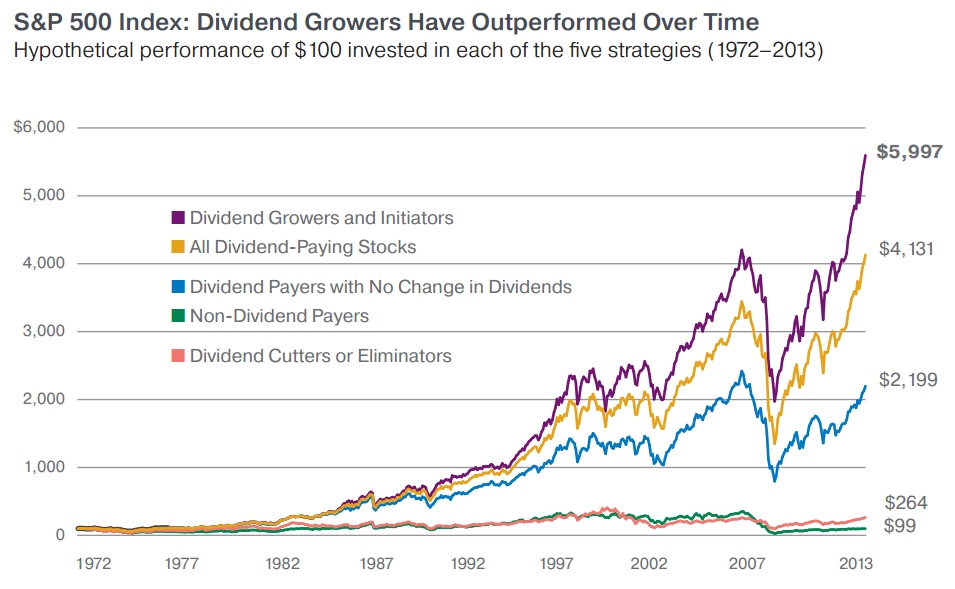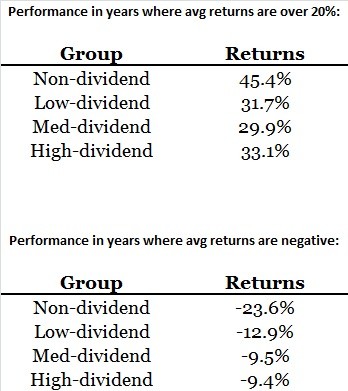Is it always beneficial to buy dividendpaying stocks Top 10 bets Economic Times
Post on: 13 Август, 2015 No Comment

NEW DELHI: Dividends are important from both the investor as well as the company point of view. They are important for investors as they are tax-free, while for companies, giving regular dividends show consistency in belief of rewarding shareholders and enhances the value of the scrip in the long term.
Most investors look for stocks which can give them double digit return in quick time. In that case, high dividend-paying companies may not excite them much.
Investing a portion (say 10-15%) of portfolio in dividend-paying companies is necessary for long-term investors who look for tax-free returns, which can be reinvested into fixed deposits and can earn compounding returns, said Kiran Kumar Kavikondala. Director & CEO, WealthRays Securities.
Stocks with good and regular dividend history are generally considered as safe heaven, because even during the times of crisis, this category of stocks reflects less chance of falling compared to others.
Public sector undertakings have traditionally been high dividend payers and, therefore, it is not surprising that three of the top five dividend-paying companies are PSUs.
Companies from high cash-generating sectors, such as IT (TCS and Infosys ) and FMCG (ITC and HUL ), are prominent members of the top 10 club, said an ET report.
Dividends may be a sign of a good stock belonging to a good company. But one should also keep a check on the future goals of company or where company is investing that cash, said Rohit Gadia, Founder & CEO, CapitalVia Global Research Ltd.
If the investor is conservative and wants to invest for longer horizon, then one can invest in dividend-paying stocks. While a growth-seeking investor, who is looking for multi-baggers, can ignore the dividend criteria while choosing the stocks, he added.
Valuations Methodology:
Dividend is an important measure while considering the valuations of a company and a company which pays regular dividend is considered a safe investment by investors.
It is one of the inputs in valuing a company and ideally it should be more than 4 per cent to indicate that the company might be undervalued, said Vikas V Gupta — Executive Vice President, Traded Markets & Investment Research, ArthVeda Fund Management Pvt. Ltd.
If the dividends in rupees/share have been at a fixed value or increasing value and the current dividend yield is more than 2.5%-3%, then it might be a good idea to investigate further, he added.
Dividend per share is a useful metric to measure basic and diluted earnings per share (EPS) which in turn is useful to calculate price earnings ratio, a key metric used in the valuation of a company and in comparative analysis with peers to find if valuations are expensive.
One could use the predicted dividends and their discounted value for valuing the price of the stock with the use of ‘Dividend Discount Model’ (DDM). If the value obtained from this method is higher than the current market price of the stock, then the stock is undervalued, said Tushar Pendharkar. Equity Strategist at Right Horizons Financial Services .
In that case investors would get the dual benefit of price appreciation as well as higher dividend yield. However, this method of valuation has many variations and this procedure would not work for the companies that don’t pay regular dividends, he added.

Is it the right strategy?
According to analysts, it totally depends on the risk profile of the investor and his/her cash requirement. A few investors take position in stocks to earn regular income. So for them holding a fundamentally sound and regular dividend paying stock could be a better investment option.
However, those investors who don’t have any short-term requirement of cash could hold stocks of those companies which reinvest their earnings into the company to grow faster rather than distributing it as dividend, added Pendharkar.
Pendharkar is of the view that most of the fund managers also take positions in these stocks to avoid significant erosion in NAV. However, it is not necessarily a right strategy to invest in all the companies which pay regular dividends, he added.
Investors should look at companies which can deploy cash at high growth rates and returns on equity over the cost of capital for long periods of time.
However, in that case the risk is that the management could squander the money on low-economic value businesses. So investors should allow this only for companies which have proven their capabilities and intent to deploy capital intelligently, he added.
Another point highlighted by analysts is the fact that investors also need to understand the expansion plans of the company, the information which can be sourced through annual reports, stock exchange notices for those companies which are in growth phase and prefer to reinvest into the company rather than distribution .
Companies that don’t pay dividends might use the money to start a new project, acquire new assets, repurchase some of their shares or even buy out another company, and may also be thinking about the high potential expense of issuing new stocks, said Gadia.
To avoid the risk of needing to raise money this way, they choose to keep all of their earnings for expansion purposes, he added.














